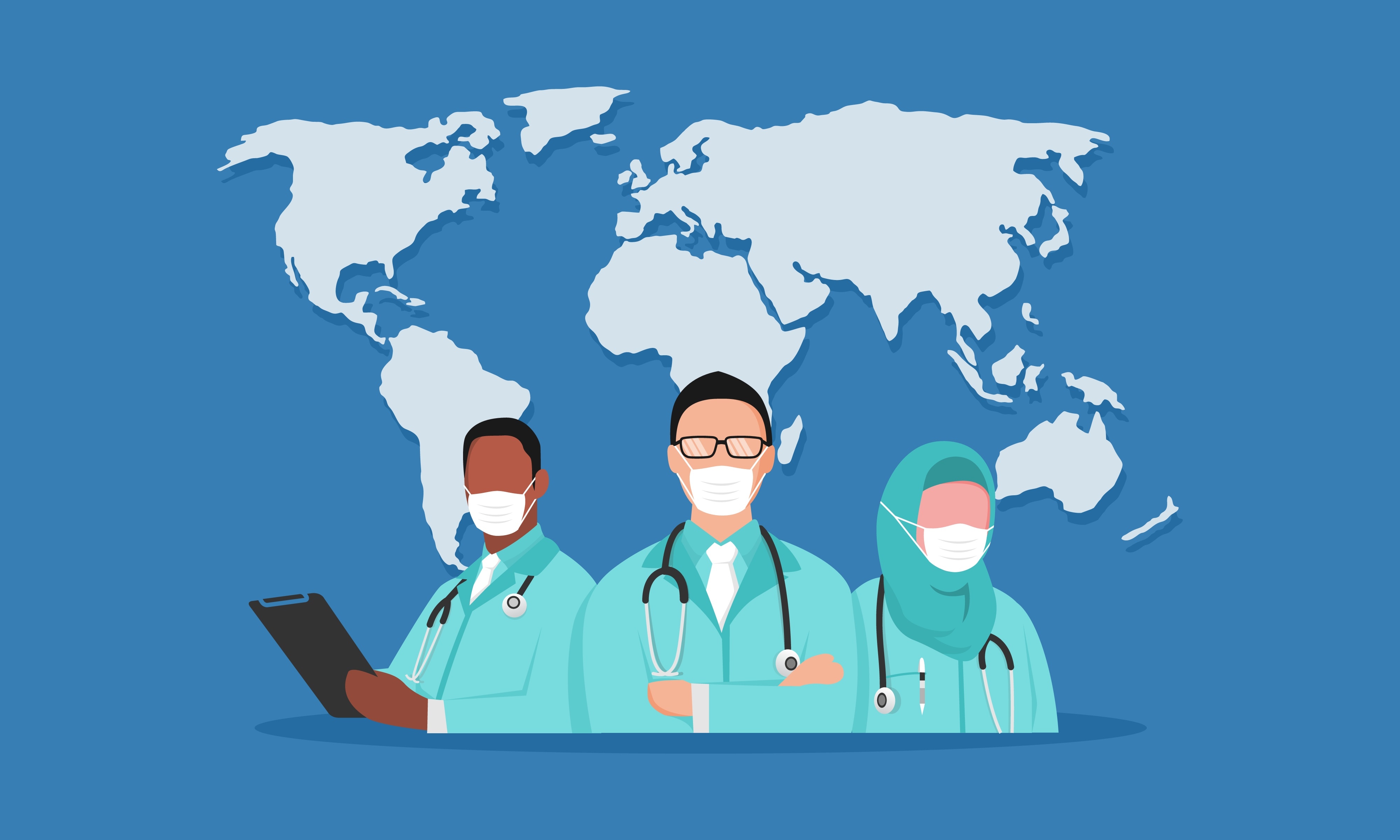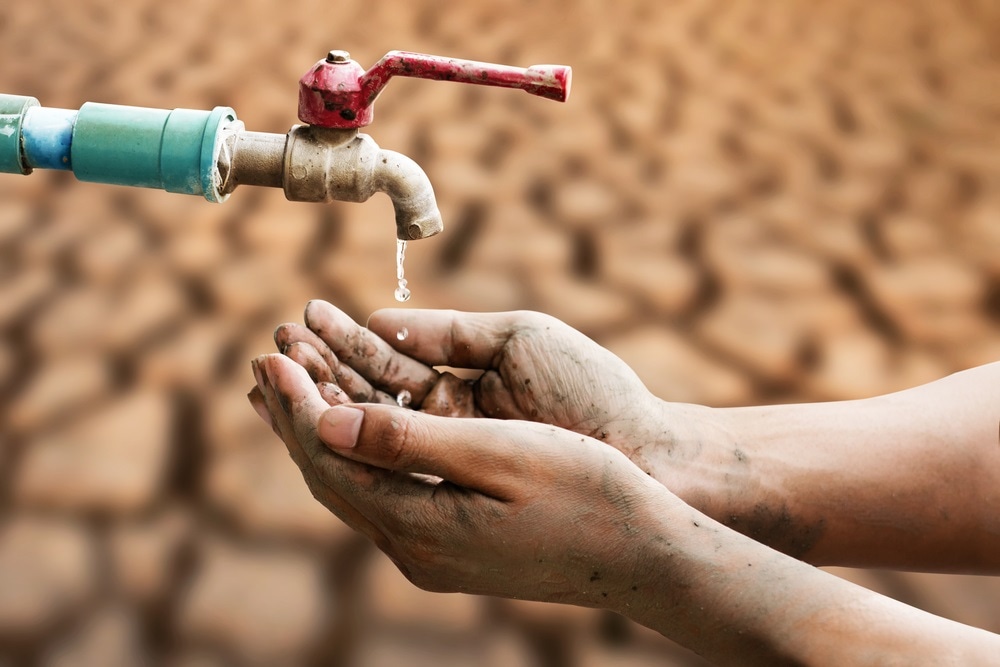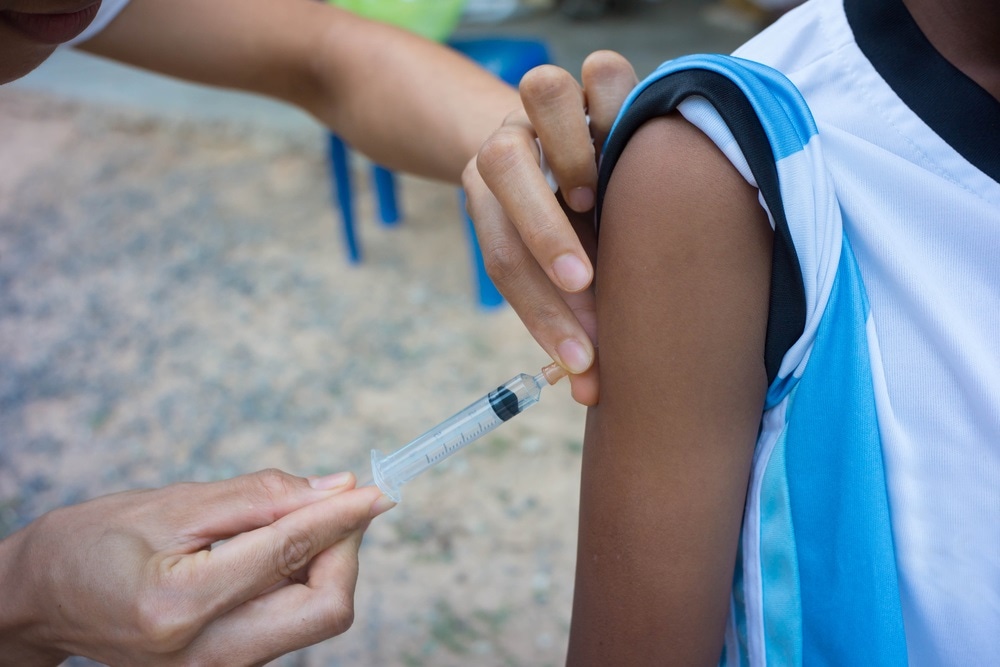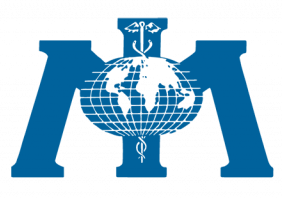My name is Margaret Traub. I am Head of Global Initiatives for the International Medical Corps. I serve on the International Medical Corps’ Emergency Response Team and have responded to crises in places including Syria, Lebanon, Nigeria, South Sudan, the Democratic Republic of Congo, the Philippines, and Haiti.
I also cultivate and manage strategic partnerships with institutions, agencies, foundations, donors, and influencers who support our work, helping to raise awareness of the crises we face, and raise money to support our ongoing programs.
What does the World Health Day 2021 theme "Building a fairer, healthier world" mean to you and how can this goal be achieved?
As we continue to fight this deadly pandemic, it is more apparent than ever that no one is safe until we all are. If we work together to ensure that every child, woman, and man can access basic healthcare, we lay the foundation for not just a fairer and healthier world, but a more dignified one.
Given our longstanding commitment to communities affected by conflict, disasters, and extreme poverty, International Medical Corps is painfully aware that an overwhelming number of people around the world lack access to healthcare. International Medical Corps will continue to deliver health and related services to some of the world’s most underserved communities as they continue their road to resilience.
 Image Credit: Noor-shine/Shutterstock.com
Image Credit: Noor-shine/Shutterstock.com
How does the International Medical Corps help to provide health treatment to vulnerable people?
International Medical Corps delivers emergency medical and related services to those affected by conflict, disaster, and disease, no matter where they are, no matter what the conditions.
We also train people in their communities, providing them with the skills they need to recover, chart their own path to self-reliance, and become effective first responders themselves.
International Medical Corps helps local health authorities provide primary and secondary healthcare services, including referral services from rural community-level clinics to large regional and national-level hospitals. We work hand in hand with national governments and local community leaders to ensure that basic healthcare is available and affordable for all—whether they are residents of remote villages or large urban centers, internally displaced people, asylum seekers, migrants, or refugees.
Training and education are central to our support of health services. We train and mentor health service providers, managers, and community representatives to strengthen their capacity to deliver, manage and monitor their local health services.
Climate change is already having and will continue to have a huge impact on health across the world as natural disasters and extreme weather become more common. How does your work reflect this?
The world is facing a climate emergency and disaster can strike anywhere, anytime. Erratic and unpredictable weather patterns—including stronger, more sudden storms, droughts, and floods—will uproot vulnerable children, women, and men from their homes and leave already marginalized communities without clean water and facing extreme hunger.
International Medical Corps is fighting back against the climate crisis by, among other things, helping drought and conflict-stricken communities battle malnutrition; we provide medical assistance to hurricane and typhoon victims; we focus on helping communities around the world with water, sanitation and hygiene; and our mobile clinics can deploy where they are needed the most, no matter how remote the location, to treat people displaced due to climate and conflict.
 Image Credit: piyaset/Shutterstock.com
Image Credit: piyaset/Shutterstock.com
Maternal and child health suffers greatly from inequality across the world. How is the International Medical Corps trying to change this?
International Medical Corps works with communities and local health authorities to improve pregnant women's health by offering services such as antenatal care, deliveries by skilled birth attendants, and quality care for obstetric and newborn emergencies. We also provide post-natal care and family planning that stresses healthy timing and spacing of pregnancies.
Furthermore, International Medical Corps contributes to better health outcomes and reduces common childhood illnesses and deaths through our programs that include vaccinations against infectious diseases, growth monitoring, early childhood development interventions, and community-based case management of common childhood illnesses.
Our malnutrition programs focus particularly on the period from conception through the 23rd month of a child’s life. During these 1,000 days—pivotal for a child’s survival—we provide a combination of growth monitoring, nutrition education (including individualized counseling), and the use of micronutrient supplements through health facilities and, as part of our ante and postnatal care, infant checkups, and community outreach.
In recent times, mental health has become more widely recognized as a hugely important aspect of health in society. How do you provide mental health and psychosocial support in humanitarian settings and why is this so important?
Survivors of conflict and disasters are at higher risk for psychological distress and mental health conditions due to continued and overwhelming chaos and uncertainty, and the enormity of loss that often includes homes, community, loved ones, and livelihoods.
As one of the few international relief organizations to prioritize prevention and treatment of mental health and psychosocial needs in humanitarian crises, we respond to these immediate needs. And, as communities recover and development begins, we focus on providing longer-term services that strengthen mental health care systems and shape national policies.
With the ongoing pandemic, health is at the forefront of everyone’s minds. What part has the International Medical Corps played in COVID-19 relief?
Working closely with international, national, and local aid and health organizations, International Medical Corps provides medical expertise, equipment, training, and triage and treatment services. We have designed a multi-pronged approach to ensure that at-risk countries and regions can prepare for and respond to outbreaks of COVID-19 and vaccinate against the virus. Our priority response activities include:
- Training and capacity building to protect frontline health workers and staff
- Prepositioning and deploying medicines, equipment, and supplies, including personal protective equipment (PPE) and cold-chain equipment
- Deployment of screening and triage stations, and case management
- Community outreach and engagement, including vaccination campaigns
- Epidemic response teams
Vaccination is a hugely prevalent topic in 2021 due to the vaccine rollout for the COVID-19 pandemic. How are you supporting the roll-out of vaccines for COVID-19 and other infectious diseases in vulnerable areas?
International Medical Corps has been fighting infectious diseases since our founding in 1984. We have responded to deadly cholera outbreaks in Haiti and Yemen and took part in the vaccination efforts that ultimately eradicated polio on the African continent.
Given our experience helping to lead the response to the 2014 Ebola outbreak in West Africa, International Medical Corps was called on in April 2018 to help the Democratic Republic of the Congo (DRC) fight the deadly and highly contagious disease; we have since responded to three more outbreaks across the country, including one that occurred in early February 2021.
We are currently responding to the COVID-19 pandemic worldwide, providing expertise, equipment, training, triage and treatment, and, crucially, vaccination services. In Jordan, our team plays a central role in coordinating vaccination efforts now underway in Azraq and Zaatari refugee camps, including raising awareness about the vaccine among refugee communities.
We are supporting vaccination efforts in our hometown of Los Angeles, helping to provide thousands of shots to underserved communities each day. And, in the roughly 30 countries around the world where we work, we are in constant contact with ministries of health, ready to support efforts to provide accurate and effective information campaigns, manage the cold chain and other logistical challenges of vaccines, assist with patient management and administer the vaccines once they are available.
 Image Credit: Lesterman/Shutterstock.com
Image Credit: Lesterman/Shutterstock.com
What are your organization's aims over the coming years?
We know that were it not for our teams and our services, many communities would be completely neglected and have no access to care.
So our goal every year is to reach more people in need, to go further, to reach the most remote and hardest-hit areas with lifesaving healthcare and training so that communities can recover and rebuild over the long term, becoming more resilient in the face of disaster.
Where can readers find more information?
About International Medical Corps

We are a global humanitarian organization dedicated to saving lives and relieving suffering. Established in 1984 by volunteer doctors and nurses, we are a nonprofit with no political or religious affiliation. Now, we have more than 7,200 staff members worldwide, more than 90% of whom are local.
Our mission is to improve the quality of life through health interventions and related activities that strengthen underserved communities worldwide. With the flexibility to respond rapidly to emergencies, we offer medical services and training to people at the highest risk, always working to strengthen local healthcare systems and promote self-reliance.
Training underpins all of what we do. From the beginning, we have used training to build both confidence and self–reliance among those we assist. Drawing on more than three decades of experience, we train people in their communities, providing them with the skills needed to recover from the adversity disasters bring, chart their own path to self-reliance and become effective First Responders themselves.
We also integrate our core strengths into programs shaped to assist local communities and others we work with, including local, regional and national government and non-government groups, as they make the journey from relief to self-reliance.